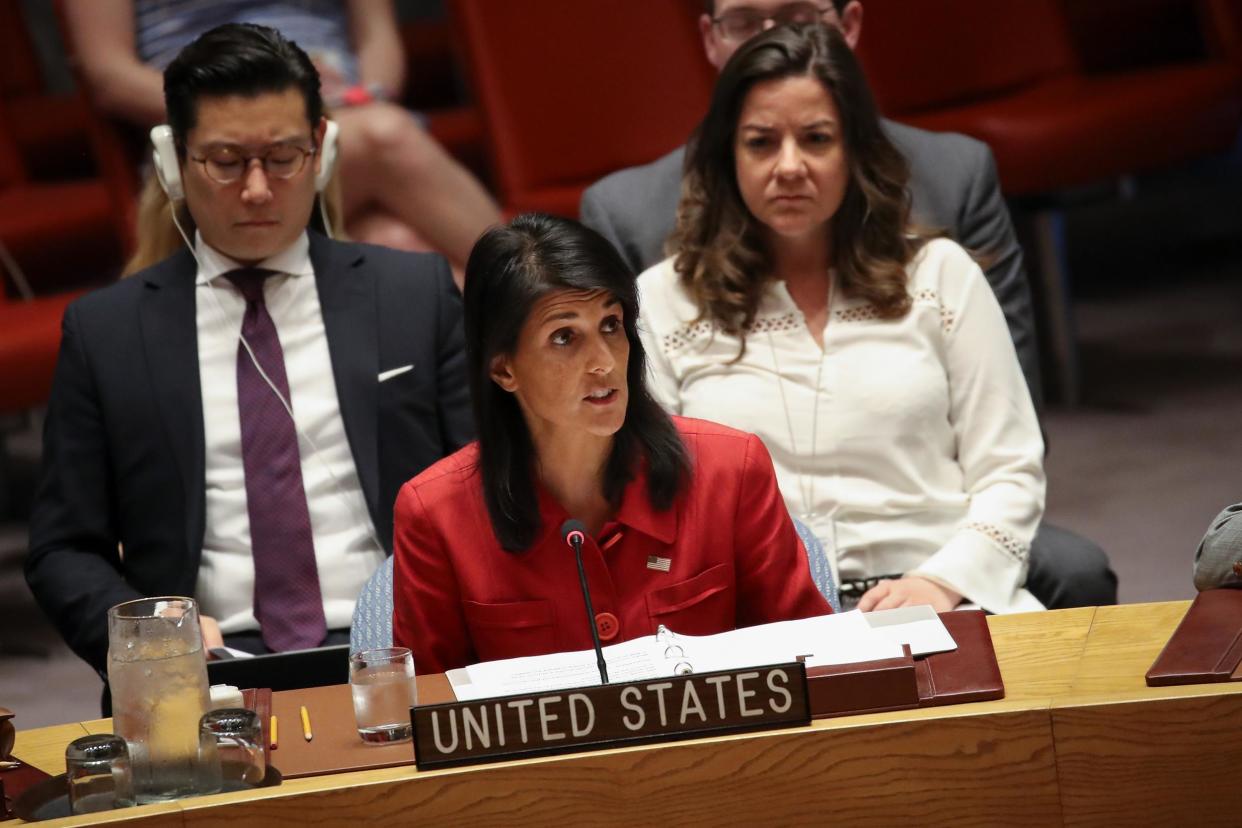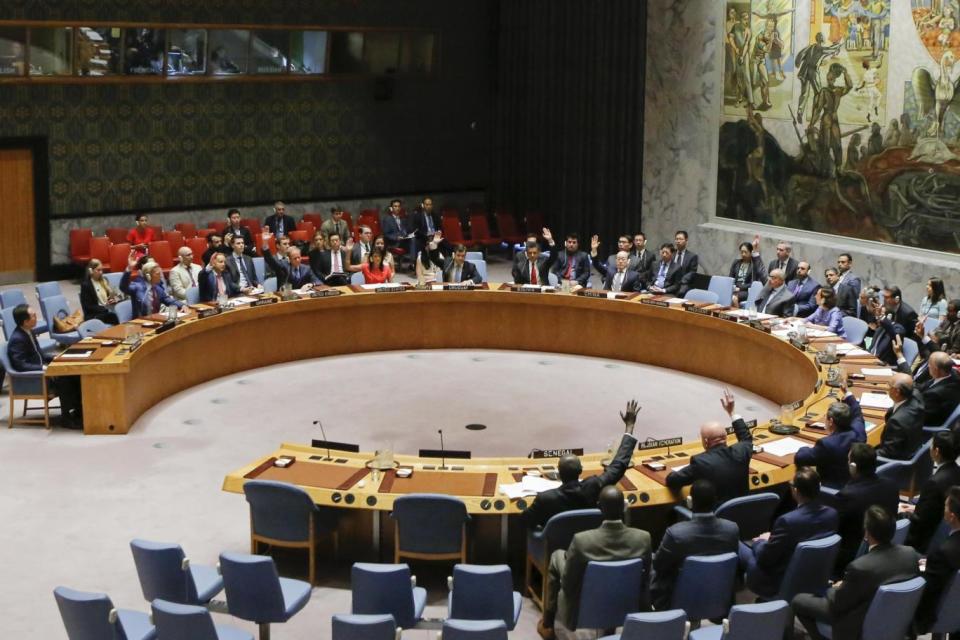North Korea warned by US 'we are not playing anymore' as UN imposes new sanctions

The UN Security Council has voted unanimously to impose an estimated $1bn of new sanctions on North Korea, in an effort to contain the country’s rapidly expanding nuclear programme.
The US-drafted proposal passed the Security Council 15-0, securing support from North Korean allies China and Russia.
“It is time for North Korea to realise, we are not playing anymore,” said Nikki Haley, the US ambassador to the UN, on Fox News programme Sunday Morning Futures with Maria Bartiromo.
She added: “A third of their trade exports have been hit, and we basically gave them a kick in the gut with a billion dollars of sanctions that they are going to begin to feel right away.”
The UN resolution bans all North Korean exports of coal, iron, iron ore, lead, lead ore and seafood. It also limits the number of North Koreans permitted to work abroad, and bars countries from entering into new joint ventures with North Korea or investing in current ones.
The resolution also adds nine people and four entities – including North Korea’s primary foreign exchange bank – to the UN blacklist.
“It was a good outcome,” US Secretary of State Rex Tillerson said at an annual meeting of the Association of Southeast Asian Nations in Manila.
“It was a very, very good outcome,” added South Korean Foreign Minister Kang Kyung-wha.
However, both China and Russia condemned the US deployment of the THAAD anti-missile system in South Korea after the vote. China called for the system’s deployment to be halted, and for existing pieces to be dismantled.
The vote comes after a month of private negotiations between the US and China on the issue. US President Donald Trump has criticised the country for not doing enough, tweeting that China had done “NOTHING for us with North Korea, just talk”.

Earlier this month, the White House moved to start investigating China’s trade practises, in what many saw as retaliation for their perceived inaction on North Korea.
Chinese Foreign Minister Wang Yi, meeting with North Korea’s top diplomat during the gathering in Manila, issued an uncharacteristically strong warning to the country.
“Do not violate the UN’s decision or provoke international society’s goodwill by conducting missile launching or nuclear tests,” he told the North Korean diplomat.
The White House thanked both China and Russia for their cooperation in a statement, adding: “[Mr Trump] will continue working with allies and partners to increase diplomatic and economic pressure on North Korea to end its threatening and destabilising behaviour.”

North Korea tested two intercontinental ballistic missiles (ICBMs) capable of hitting the US last month, demonstrating a level of advancement that surprised even the Pentagon. The Department of Defence now predicts Pyongyang could have nuclear-capable ICBMs by 2018.
The test added pressure to an already tense situation with isolated North Korean dictator Kim Jong-un. The US responded to the latest test by flying two supersonic bombers over the Korean Peninsula in a show of force. The US air force also successfully tested its own ICMB located in California.
North Korea has accused the United States and South Korea of escalating tensions by conducting military drills.
Several US officials have said the country is prepared to use force against the North Korean regime if necessary.
“The President has been very clear that he’s not going to tolerate North Korea being able to threaten the US,” national security adviser HR McMaster told MSNBC’s Hugh Hewitt on Saturday. “So of course we have to provide all options to do that, and that includes a military option.”
Senator Lindsey Graham said last week that he had discussed the military option with Mr Trump personally, telling NBC: “If thousands die, they’re going to die over there. They’re not going to die over here – and [Mr Trump] has told me that to my face.”
The White House has said only that all options remain on the table.

